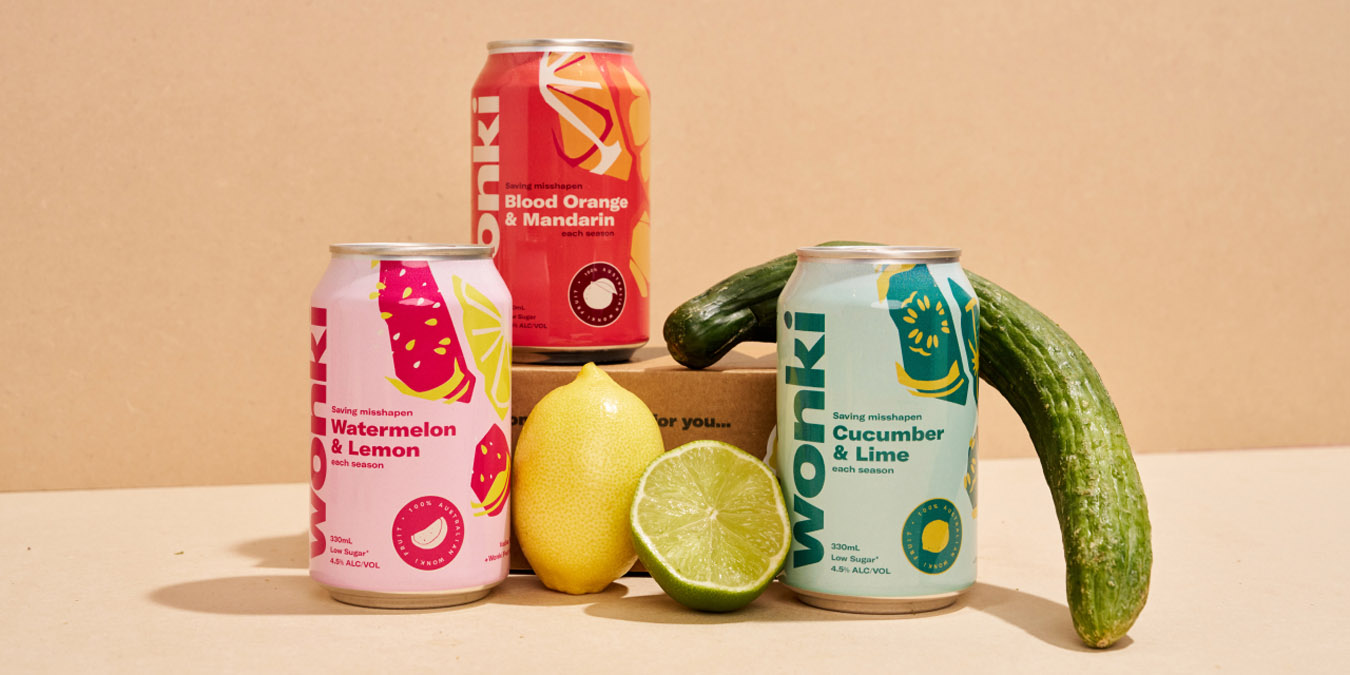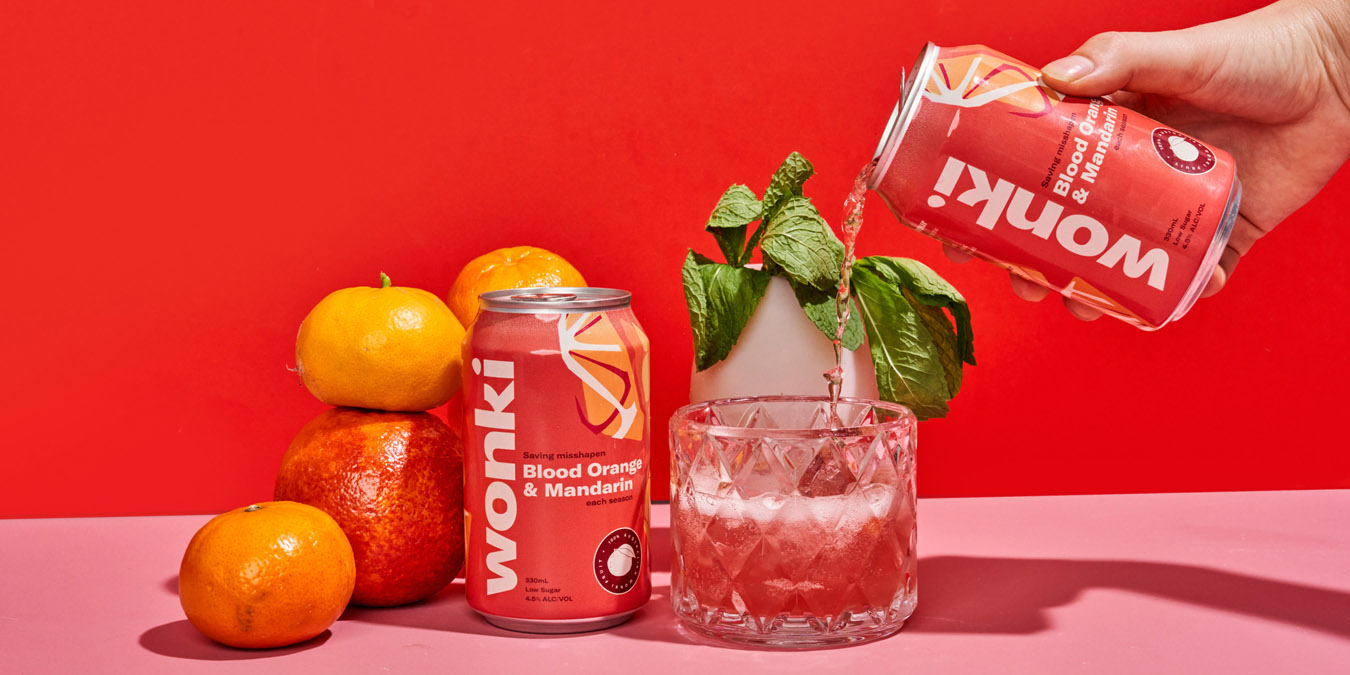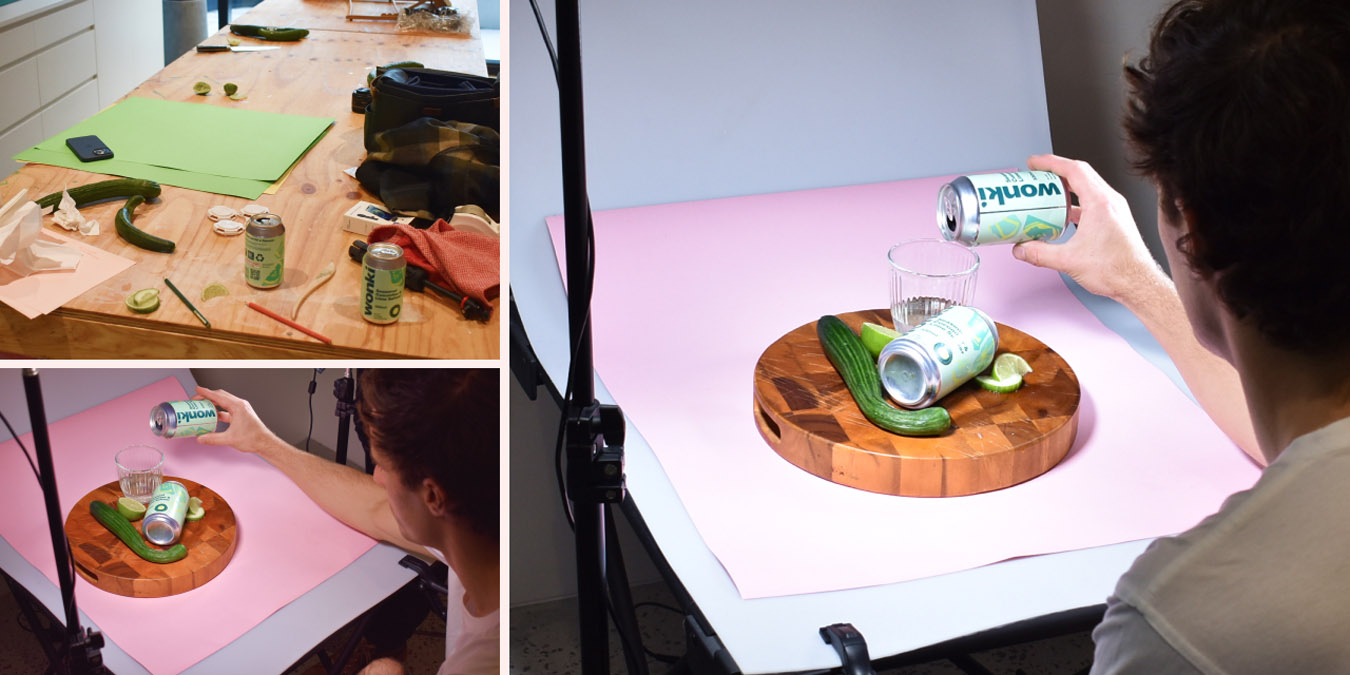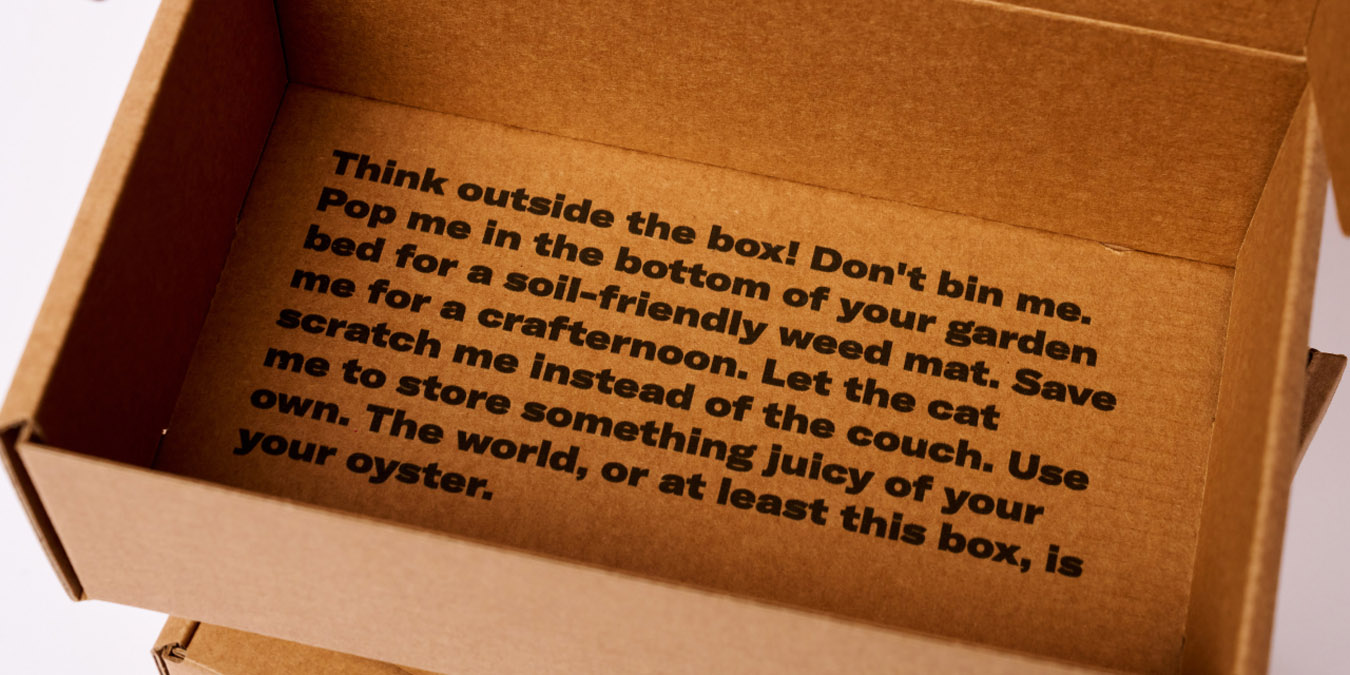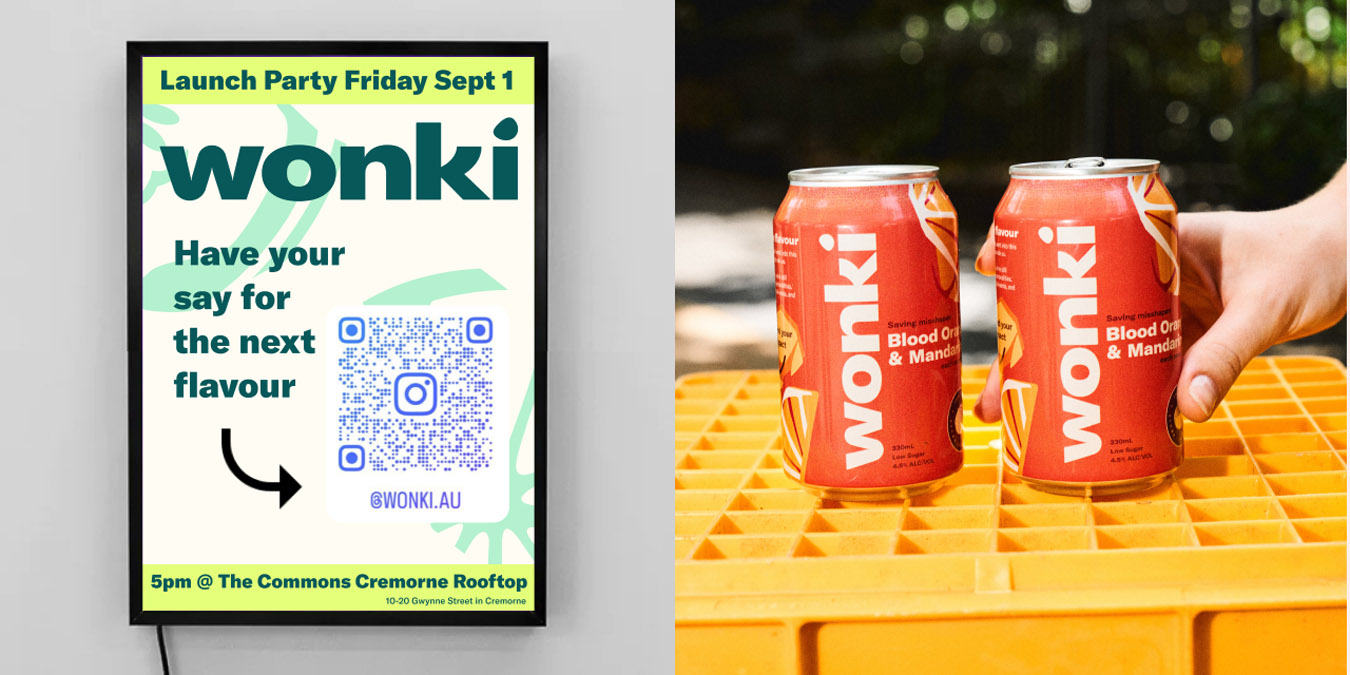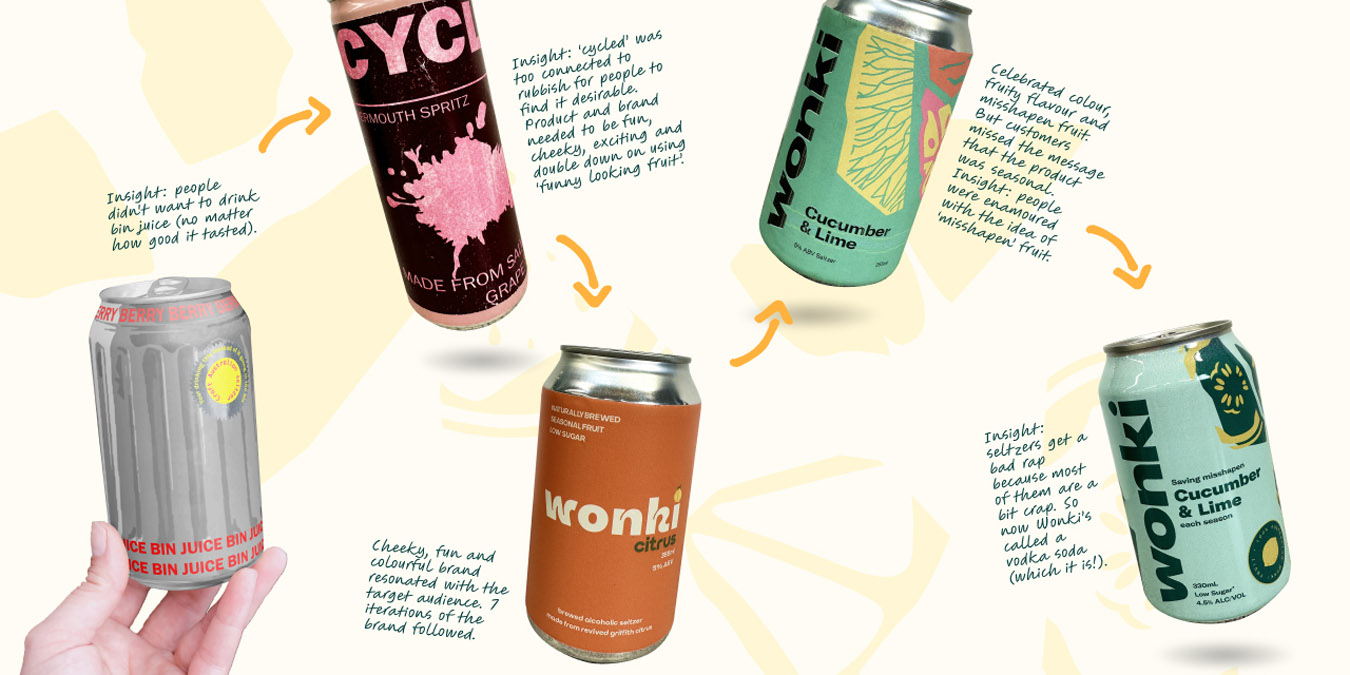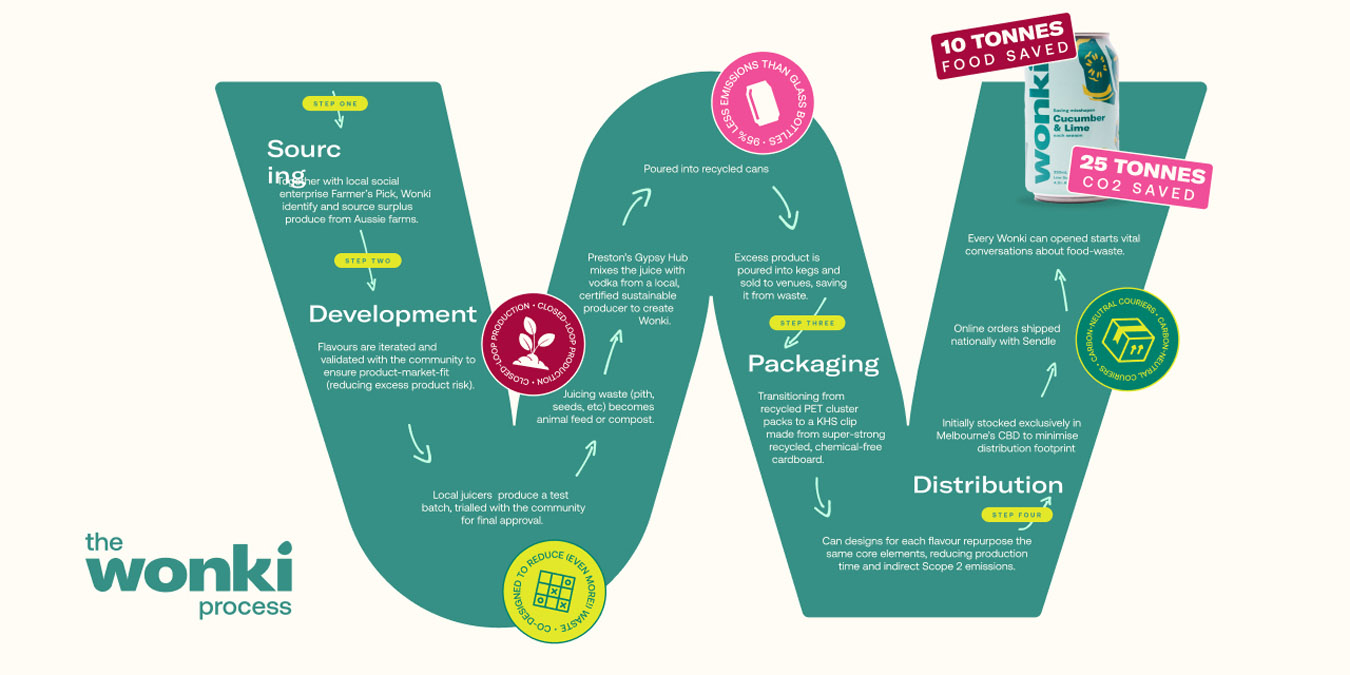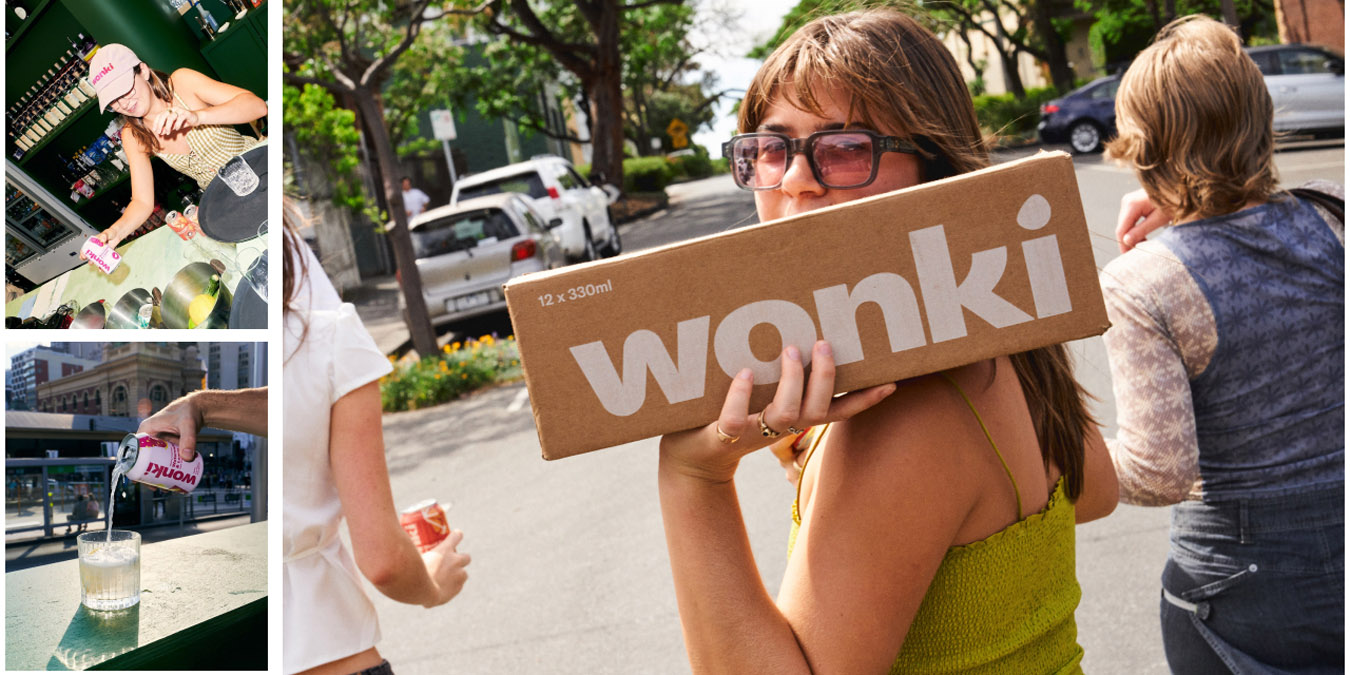Wonki’s design features extend beyond the beautiful brand into a consciously-created product with sustainability at every step.
Sourcing:
Together with local social enterprise Farmer’s Pick, Wonki identifies seasonal surplus produce from Aussie farms that require timely saving.
Development:
- Flavours are iterated and validated with the community to ensure product-market-fit (reducing excess product risk).
- Local juicers then produce a test batch, trialled with the community for final approval.
- Juicing waste (pith, seeds, etc) becomes animal feed or compost in a closed-loop.
- Preston’s Gypsy Hub mixes the juice with vodka from a local, certified sustainable producer to create Wonki.
- Poured into recycled cans (95% less emissions than glass bottles).
- Challenge: Variable juice yield - excess product is filled into kegs and sold to venues, saving it from waste.
Packaging:
- Initially cluster-packed using recycled PET, Wonki is transitioning to a KHS clip
- Made from robust cardboard removing the need for toxic ‘wet-chemicals’ which prevent effective recycling.
- Wonki’s can designs for each flavour repurpose the same core elements, reducing production time and indirect Scope 2 emissions.
Distribution:
- Initially stocked exclusively in Melbourne’s CBD to minimise distribution footprint.
- Online orders shipped nationally with Sendle a carbon-neutral courier.
- Every Wonki can opened starts vital conversations about food-waste.

